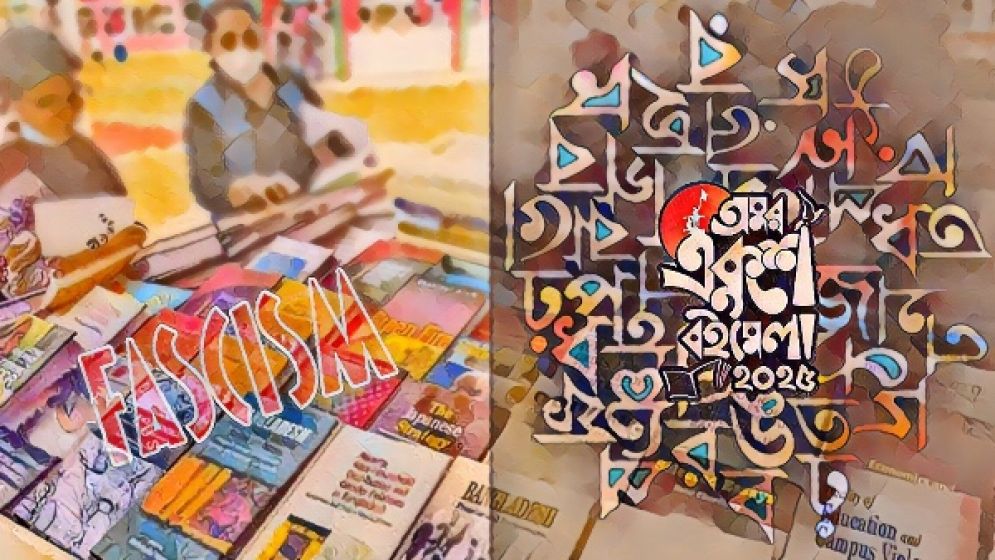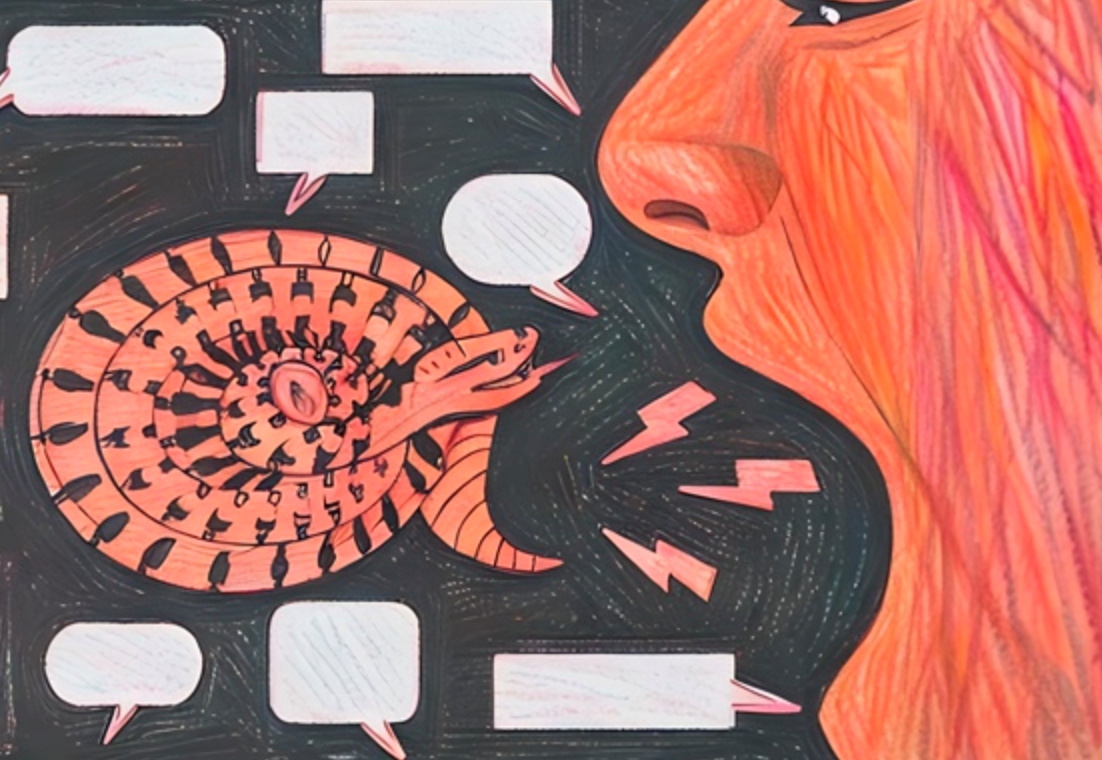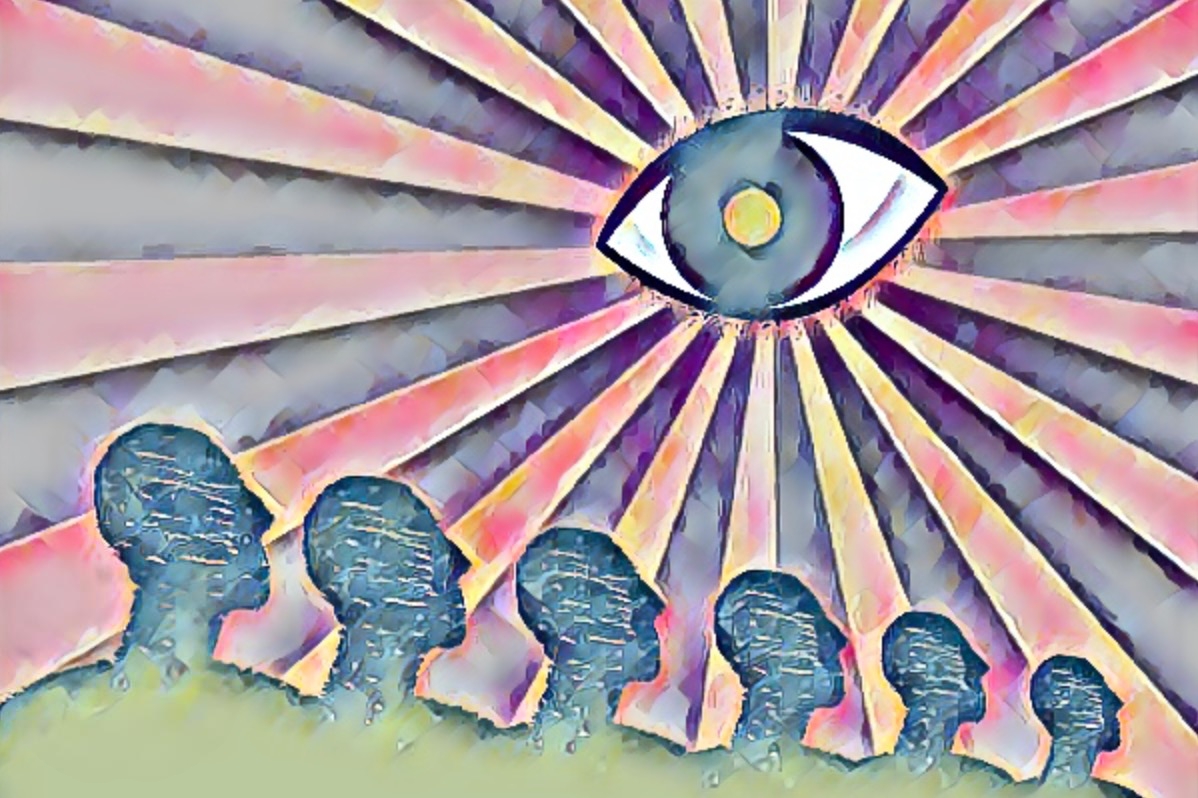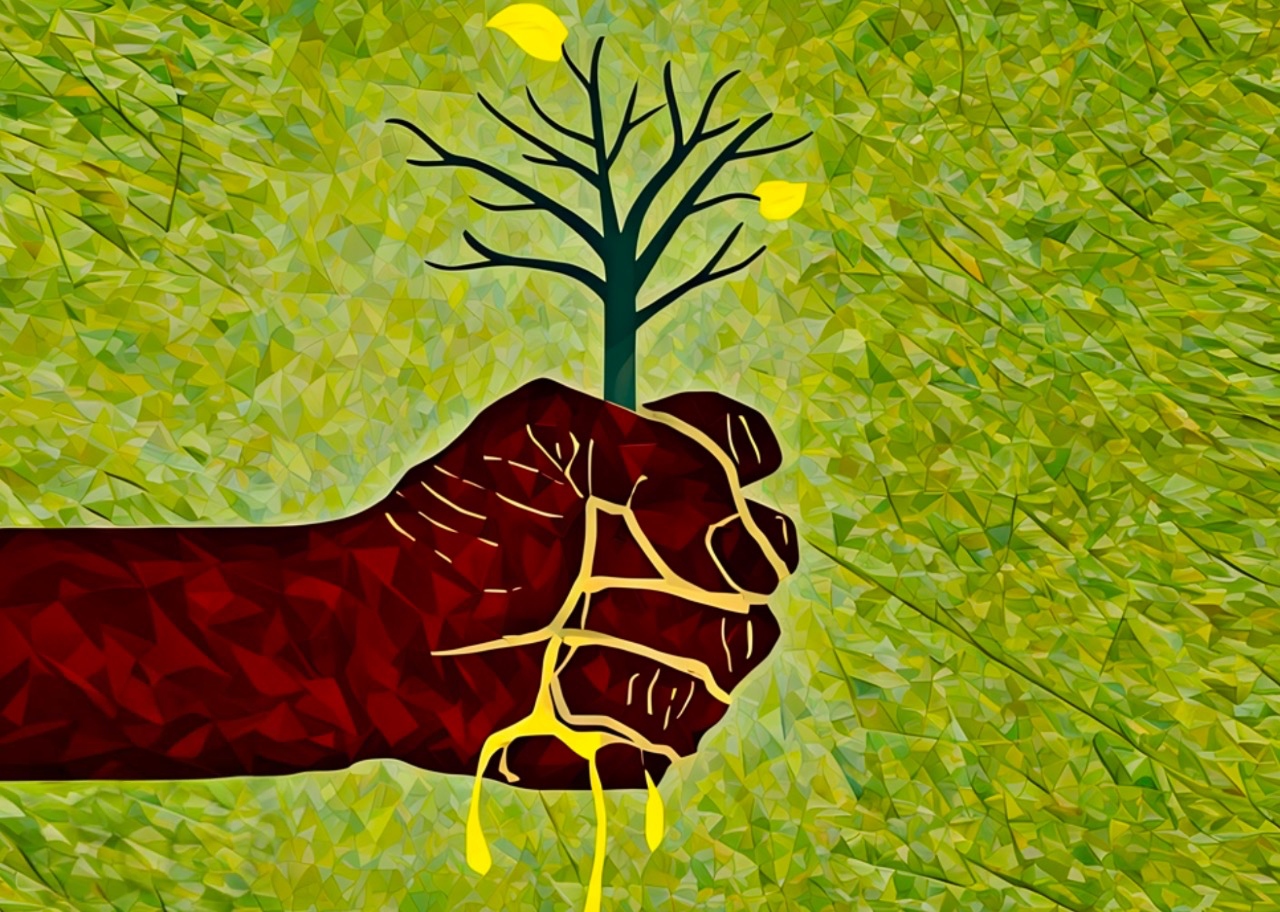The unspoken crisis of the Amar Ekushey Book Fair

For the past few years, I’ve found myself cast in the role of an adversary to the Bengali language and literature–especially during the month of February. As a modest poet and thinker in this language, I've raised my concerns multiple times, hoping for a meaningful dialogue.
But it seems my words have fallen on deaf ears, particularly among those who claim to be the stewards of our Bengali cultural identity. Let me now try, once again, to articulate my thoughts in plain terms, with no pretense or intellectual flourishes.
What I have noticed—and what I believe many others have begun to recognize—is the deeper problem of consciousness at the heart of Bangladesh’s Amar Ekushey Book Fair.
Yes, the ousting of dictator Sheikh Hasina has created a disruption into the false narrative of Awami Bengali nationalism. But when you step back and look at the larger picture, the book fair still carries the stench of mediocrity, tainted by a stubborn residue of secular-fascist influences that have only deepened in the past decade.
To offer some context, let me refer to an article penned by Shamsuzzaman Khan, the former Director-General of the Bangla Academy, which appeared in Prothom Alo during the book fair season a few years ago.
He wrote, “The Bangla Academy Book Fair is established as the ‘Amar Ekushe Grantha Mela.’ Deeply imbued with the people’s emotions, love, and attachment to books, this fair has slowly developed into a unique institutional symbol of Bengali cultural awakening and taste-building. Our book fair is unlike any other; it is a memorial for the Bengali people’s love for language, their struggle for language, and the establishment of their mother tongue as the state language.”
Khan went on to compare the book fair to similar events across the world, but in the process, he contorts the narrative to elevate the Ekushey Book Fair as a “uniquely distinguished” event, imbued with profound significance because of the language movement.
While I don't intend to focus on his reasoning, the message is clear: the book fair has evolved beyond a simple marketplace for books. It has transformed into a platform for ideological reinforcement—one that the Awami League fully exploited to position even Sheikh Mujibur Rahman as a central figure in the language movement.
For me, the reality behind the book fair is far less about culture and more about fragmentation. Despite the excitement, the festivals, and the cultural vibrancy that one can observe during this month-long celebration of books, it’s impossible to ignore how divided our society remains.
The fair, designed to be a showcase of our “supposed thousand-year-old cultural pride,” has failed to unite people of diverse thoughts and tastes. Rather, it has deepened the divides within our society.

The hoopla surrounding cultural
“taste” and “awareness”
As Khan himself points out, the book fair is intended to build cultural taste and awareness. But here’s my question: why, in a marketplace of books, is taste being so rigidly defined? Why should we all be expected to measure up to some uniform standard of Bengali-ness?
This country is made up of individuals with vastly different ideas, tastes, and beliefs. Shouldn’t that be acknowledged and celebrated, rather than suppressed?
It’s telling that this very issue goes unspoken, even by the intellectuals who dominate the scene. The foreign-funded academics who claim to be voices for multiculturalism have, paradoxically, helped foster a fascist-like atmosphere around the book fair in the last decade, particularly under Hasina’s kleptocratic regime. Will things be different this time around? I remain unconvinced.
This is because at the heart of the problem is this: different beliefs, ideals, and cultures are either ignored or cast as the enemy of this imagined homogeneous Bengali identity. I have yet to hear anyone speak openly about this division.
Instead, we’re seeing the same voices that should be pushing for intellectual diversity, those who dissent, bow to the prevailing forces. These individuals, caught in a state of fear or inferiority, play along, feigning their love for Bengali culture in order to compete for their place at the table, clinging to the idea of cultural unity.
But here’s the most crucial question: what, exactly, do they think they are accomplishing by shouldering the burden of Bengali culture at this fair? If the goal is truly to protect and preserve culture by organizing an event like this, I would argue it would be better if we simply let the culture die. A culture that requires such weak, insecure defenses is doomed to failure in today’s fast-paced, globalized world.
The Amar Ekushey Book Fair should be a celebration of literature, a marketplace for ideas that transcends political divides and ideological purity tests. Instead, it has become a battleground where conformity is celebrated, and diversity is silenced.
And until we realize this, the fair will continue to be nothing more than a farce—one that ultimately holds back, rather than elevates, the very culture it purports to honor.

From cultural awakening to literary
fanaticism
The problem with approaching the Amar Ekushey Book Fair as a "consciousness-driven" spectacle, rather than a straightforward platform for book publishing and business, is that it creates no room for those who wish to exist outside this prescribed mindset. But this, while significant, isn't the main issue I want to address.
What’s more troubling is the way this consciousness-driven mania at the book fair feeds an empty ego within our uneducated mindset, inadvertently laying the groundwork for the rise of fascism. This cultural fervor, which is touted as a form of national pride, is a dangerous distraction.
Publishers, too, have adopted this warped version of the narrative. You’ll notice that many now consider themselves less as book merchants and more as self-appointed cultural custodians—almost as if they’ve taken on the role of "saving the nation."
Their behavior suggests that, for them, the book fair isn’t just about business; it’s about fulfilling a larger cultural responsibility.
In their self-congratulatory pursuit of so-called "free thinking," many publishers contribute to—and even support—a distorted form of cultural expression. While some publishers are genuinely committed to their craft, others are more thrilled by the intoxicating rush of "consciousness" than by the actual act of doing business.
This cultural fixation has trapped Bangladesh's book market in a state of stagnation and poverty, unable to evolve. Anyone familiar with the global book market will agree: Bengali publishing is still shackled by the Renaissance mentality of the 19th century, unable to transition into a field of modern commerce or corporate business.
The reason? In our eagerness to indulge in "consciousness," we regress to the Vedic age. We forget that this is 2025, not 1952.
Moreover, the frenzy surrounding the publication of books centered around February 21 has effectively ruined the reading culture. The historical narrative of 1952 to 1971—an era that has been forcefully imposed upon the national psyche—has been the subject of much discussion elsewhere, and I won't revisit it here.
What I will say is this: rather than nurturing a true culture of knowledge and creativity, the book fair in Bangladesh has devolved into an event for spreading "literary fanaticism." The reality is, a genuine writer doesn’t need the book fair to validate their work. Yet, at the fair, we often find ourselves irritated by the nuisance of certain writers who thrive on the spectacle.
Like every other trend, there is now a palpable pressure to publish, coupled with a desperate craving for fame—an urge exacerbated by the toxic ideology of fascism that has seeped into the very fabric of the fair. This, I believe, is what we can call the literary fanaticism of the book fair.
To clarify: if a book is truly a vehicle for knowledge, then the emergence of that knowledge itself should be celebrated as an event of significance. There’s no need to attach a separate "consciousness event" to it. When a book is released, the real event should be for the readers—the seekers of knowledge. That's the event that truly matters, and that's the spirit we should be cultivating.

Where language and identity are held
hostage
I believe an event like the Amar Ekushey Book Fair could happen at any time throughout the year. The writer can intervene whenever they wish. If Bangladesh had a truly robust national book market and a thriving reading culture, publishers wouldn’t have to constantly worry about book sales.
But as it stands, from amateur writers to seasoned professionals, every book gets caught in the whirlwind of "consciousness," and this rapidly dilutes the significance of the book itself.
In this frenzy, numerous books are released but remain forgotten for the rest of the year. For one month, they take part in what feels more like a gambling fair than a meaningful literary event. This has resulted in readers becoming largely seasonal—only active during the fair itself, contributing to the noise and dust, along with their friends, legal or otherwise.
Meanwhile, organizers and publishers remain obsessed with drawing crowds. Yet, the reality is that these crowds aren’t buying books in substantial numbers. This unhealthy competition for sales has become a barrier to shaping a healthy book market or a sustained reading culture in the country.
At the core of this issue is the lack of genuine love for language in Bangladesh. What exists is a "culture of alphabet worship." If there were true love for language, our children would be learning two or three languages, including Arabic and English, at an early age.
Yet, even the Bengali language remains poorly mastered. The obsession is not with language itself, but with the symbols of language—the letters. This isn’t love for language; it’s a shallow form of devotion to the alphabet.
Those who champion language-based nationalism and invoke the spirit of the Liberation War aren’t just misguided—they are, frankly, ignorant. They misunderstand the connection between language and nationality. Language doesn’t make a nation.
Many nations have been formed in Arabic-speaking regions, yet no one would claim they are all one people simply because they speak the same language. There’s no singular "Bengali" language either; Bengali exists in many forms. Some scholars, particularly from Kolkata, seek to impose their version of Bengali on the rest of us, calling it "Man Bangla." Does this mean all other dialects are inferior?
The chest-thumping enthusiasm around the so-called "Festival of Life" leaves no room for considering this as merely "simple cultural love." This overt nationalism ties directly into fascism, and one could even call it cultural fascism.
I won’t delve into a theoretical discussion here, but I’ll leave you with a hint. The famous philosopher Giorgio Agamben, in his book The Sacrament of Language, explores language in a way that made me realize that the conversation about language in our country is still in its infancy. What we have now is an emotional exercise, sticky and superficial, that leads nowhere productive.
Language isn’t just a means of communication; it’s deeply tied to self-identity, to existence itself. And it’s connected to the politics of belief and power. Without understanding this, we risk continuing down the path of cultural and intellectual regression, far from the progressive, open-minded future we so desperately need.

Language, ideology, and the fascist
trap
No language can be considered more sacred or more loved than another. Bengali is simply a system of signs, a tool for communication. If you are so absorbed in devotion to this system of signs, the very concept of "language" itself fades into the background.
As I mentioned earlier, philosopher Giorgio Agamben uses the term sacrament to explore the idea of culture—not merely as a cultural expression, but as a form of belief or religious reform. There is a direct connection between the development of language and the reform of belief systems.
By imposing one version of a language, they are essentially enforcing an ideology or a religion. This is why you see intense backlash whenever Arabic or Persian words enter Bengali; they cannot tolerate any belief, any form of expression, that doesn’t align with their narrow linguistic domain.
The month-long frenzy of the Amar Ekushey Book Fair has long been shaped by a politically charged, partisan narrative surrounding the language movement. Over the past decade and a half, the Awami League has constructed a specific narrative around the events of 1952, even though the language movement was never originally a party-political issue.
By adopting the notion of ‘Bengali’ nationalism from Kolkata, the Awami League has woven together the events of 1952 and 1971 into a bizarre political story, one that serves their own interests while obscuring the complexities of history.
In this context, the book fair was reduced to nothing more than a political event for the ruling party, disguised under the guise of cultural celebration. Instead of exposing the political motives behind the event, everyone seemed to regard it as a sacred season for defending language and literature.
This sense of reverence, however, is rooted in an inferiority complex born out of political illiteracy among our writers and their desperate hunger for fame.
The politics behind the book fair, tied firmly to the Awami narrative, has been holding the nation back. This narrative is built on falsehoods, making it an illegitimate carrier of fascism. The cultural practices associated with it have been tainted by this political nightmare, with writers mindlessly legitimizing its harmful influence.
Yes, the Amar Ekushey Book Fair should exist—but its purpose should be far different. It should serve as a platform for writers, readers, and publishers to thrive. There should be meaningful contracts for major works, and a streamlined process for publishing the work of new writers.
Domestic and international authors should come together, engage in discussions, and be inspired to write ambitious works. Writers should return home with the vision that their book, in itself, is an event to be celebrated—no longer confined to the month of February.
Publishers should imagine a book fair like those held around the world, where books can be released at any time of the year. The focus should be on literature, not on the politics of consciousness.
The idea of ideological "purity" in the name of language should not become our heritage. We must move away from illiteracy and misinformation masquerading as a love for language.
—-
Rezaul Karim Rony is a writer and thinker. He is the editor of Joban magazine

